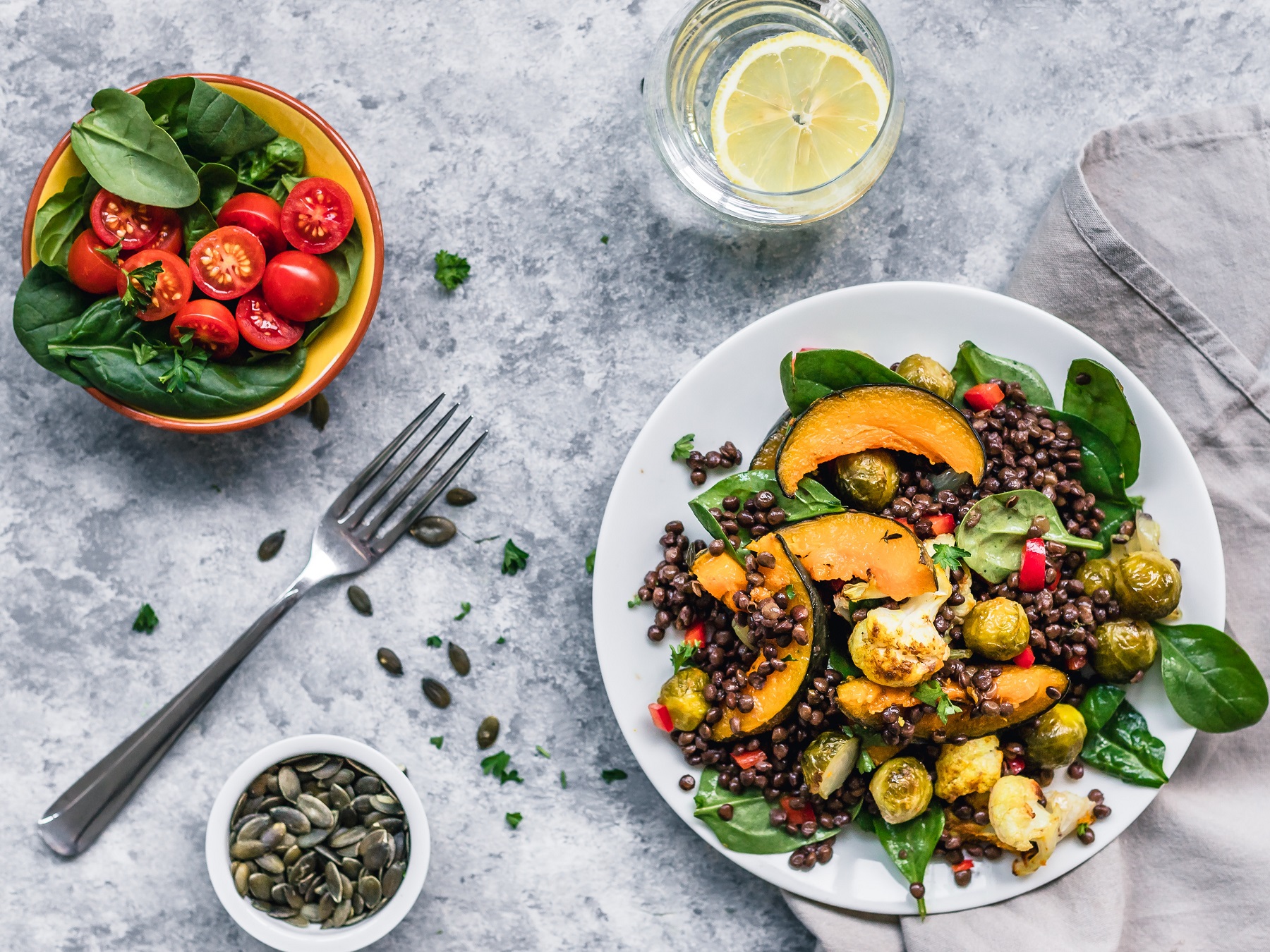
What new year’s resolutions could you make on behalf of your gut microbiome?
So, you enjoyed a few celebratory drinks, dove head-first into the Christmas trifle, and had an extra helping (or six) of assorted cheeses and chutneys from various party platters – you enjoyed your holidays and that’s OK. But let’s be real, your gut health is suffering and now you’re thinking it’s high time to press reset. You may be wondering, what’s the best way to get my health in check?
Forming new habits can be challenging. In fact, it can take between 18 to 254 days to change a habit!1 This explains why many of us are great at making new years resolutions but have a hard time sticking to them. The fact of the matter is, the benefits far out way the challenges – and that’s where we need to focus. So here are a few new habit-making tips that your gut bugs will love.

How can microbiome testing help your health goals? Find out more.
Try new plant foods
As creatures of habit it is really easy for us to gravitate to the same sorts of foods. This is because they are familiar, we know what they taste like, we know how to cook and prepare them or even that the family will eat them.
Research shows that the more diverse our diet in plant-based foods, the more diverse our gut microbiome is, making it more resilient to disruptions2.
This makes sense, because if we eat the same sorts of foods, we nourish the same sorts of microbes. So, why not try something new that you would usually cruise past in the supermarket? Some gut-friendly foods you may not commonly consume are millet (grain), fennel (vegetable), white beans (legume), carombola or star fruit (fruit), linseeds and brazil nuts.
New habit tip: Park your trolley or stand in a section of the supermarket, green grocer or farmers market that you wouldn’t usually frequent. Take a look around, learn what foods are there and make a deal with yourself to give something new a go.
Move your body
Movement is good for us in so many ways. Not only does it help to improve our mood5 and keep us physically strong, but it also helps our gut health by increasing the diversity in our gut microbiome6.
Want to know more about the gut-exercise connection? Find out.
The Australian physical activity guidelines suggest any activity is better than none, but aiming to be active on most, if not all days of the week is preferable, with 150 – 300 minutes of moderate intensity activity, 75 – 150 minutes of vigorous intensity activity or a combination of both7.
New habit tip: Arrange to meet a friend or two to go for a walk and make this a regular gig. For many of us, meeting people is a great motivation to get us out and about and moving our bodies.
Plan your meals
Meal planning is a task that most of us would like to do but somehow find ways not to.
Research shows that planning meals in advance is linked with higher intake of fruit and vegetables3,4. As many fruit and vegetables contain nourishing prebiotics this is great news for your gut microbiome.
Another benefit of planning your meals is that you can structure the week ahead to reflect your eating style. If you’re looking for more ways to incorporate plants in your diet throughout the week, you could plan some meat-free meals or space out which meals include red meat, poultry or fish – making sure the majority of these are full of plants. This ensures that your gut is receiving the nourishment it needs all week long.
New habit tip: Before you decide that this is too hard or drive yourself crazy trying to plan every meal, start small. Plan one to two meals a week and build on this down the track. You’ll be surprised at how much a couple of planned meals can make a difference. Plus, not only will your gut bugs thank you, but you will save money by reducing your food wastage and ordering less take-out.
Summary
Don’t feel bad about indulging in the celebrations. Be patient and kind to yourself, because this is a lifestyle, not a quick fix. You have to remember that creating new and healthier habits can take some time to form.
If you’d love to learn more about what your gut is doing and how it can influence your health, take the Microba Insight™ challenge! Test yourself now, and then again every three-six months to measure how the changes you make improve your gut microbiome.

Measure and track your gut and your health with a Microba Insight™ subscription
*While Microba attempts to make the information on this site as accurate as possible, the diet recommendations and views expressed here belong to the author and do not necessarily reflect those of Microba.
This microbiome test is not intended to be used to diagnose or treat medical conditions. A full disclaimer is available here
References
1. Lally, P., van Jaarsveld, C.H.M., Potts, H.W.W. and Wardle, J. .
How are habits formed: Modelling habit formation in the real world. .
Eur. J. Soc. Psychol., 2010; 40: 998-1009.. Doi: doi:10.1002/ejsp.674
2. Heiman, M.L., Greenway, F.L. .
A healthy gastrointestinal microbiome is dependent of dietary diversity. .
Molecular Metabolism. 2016; 317-320.
3. Kreausukon, P., Gellert, P., Lippke, S. Schwarzer R. .
Planning and self-efficacy can increase fruit and vegetable consumption: a randomised controlled trial. .
J Behav Med., 2012; 35: 443-451.
4. Boutelle, K.N., Birnbaum, A.S., Lytle, L.A., Murray, D.M., Story, M.. .
Associations between perceived family meal environment and parent intake of Fruit, Vegetables, and Fat. .
J. Nutr. Edu. Behav., 2003; 24-29.
5. Silverman, M. N., & Deuster, P. A..
Biological mechanisms underlying the role of physical fitness in health and resilience. .
Interface focus. 2014; 4(5), 20140040. . Doi: https://doi:10.1098/rsfs.2014.0040
6. Estaki, M., Pither, J., Baumeister, P. et al. .
Cardiorespiratory fitness as a predictor of intestinal microbial diversity and distinct metagenomic functions..
Microbiome 4, 42 (2016) . Doi: https://doi:10.1186/s40168-016-0189-7
7. The Department of Health. .
Australia’s Physical Activity and Sedentary Behaviour Guidelines and the Australian 24-Hour Movement Guidelines. .
2012. Last updated 12 April 2019.


